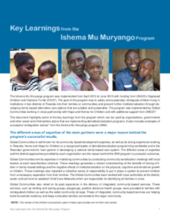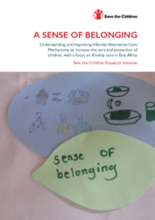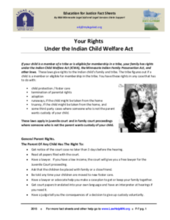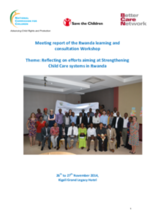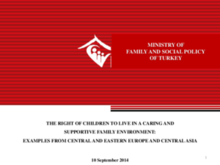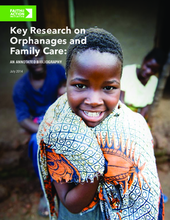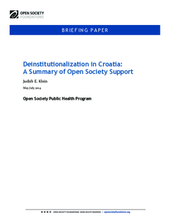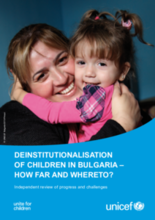Displaying 111 - 120 of 312
This document highlights some of the key learnings from the Ishema Mu Muryango program, a program designed to safely and sustainably reintegrate children living in institutions in two districts of Rwanda into their families or communities and prevent further institutionalization.
This paper forms Part 1 of a two-part discussion paper on Indigenous custom adoption.
This report presents research conducted by Save the Children in East Africa. The aim of this research was to build knowledge on endogenous care practices within families and communities, especially informal kinship care, in order to increase the care and protection of children. The research on kinship care was implemented in Ethiopia, Kenya, and Zanzibar.
This fact sheet describes the rights of native children and families under the Indian Child Welfare Act (ICWA) in the United States.
As part of the work of the BCN Eastern and Southern Africa Regional Initiative, the National Commission for Children in partnership with BCN, and Save the Children convened a national consultative workshop in Kigali, Rwanda on 26 and 27 November 2014. This report presents a summary of the main priority outcomes which were identified by participants during the meeting, including: evidence building and sharing, strengthening advocacy, and strengthening capacity.
On 10 September 2014, UNICEF and the Permanent Mission of Bulgaria co-hosted a high level Lunchtime Discussion on The right of children below three years to live in a caring and supportive family environment: examples from Central and Eastern Europe and Central Asia. The discussion took place on the margins of the September meeting of the UNICEF Executive Board and brought together over 80 participants, including members of the UNICEF Executive Board, representatives of the Permanent Missions to the UN from the CEE/CIS region, international organizations, NGOs, high level UNICEF and National Committee staff.
This resource is provided as a working bibliography of key research and evidence-based policy papers on the care of orphans and other vulnerable children separated from parental care.
This paper examines the benefits and challenges of de-institutionalizing disability residential services in Croatia through Open Society Foundation’s Mental Health Initiative (MHI).
This Review, commissioned by UNICEF Bulgaria, is aimed at informing the recommendations for the Bulgarian Government’s Action Plan for the implementation of the National Strategy ‘Vision for Deinstitutionalisation of Children in Bulgaria.’
This article outlines a few of the common values and principles that provide the foundation for Muslim understandings of child–adult relationships and approaches to child protection and nurture.

